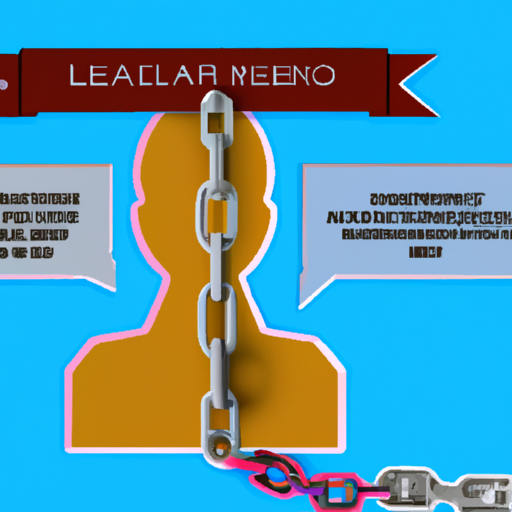In the ever-evolving world of technology, software companies face unique challenges when it comes to social media compliance. As social media platforms continue to gain popularity, it becomes crucial for software companies to understand and adhere to the regulations and guidelines set forth by the law. This article aims to provide software companies with a comprehensive understanding of social media compliance, the potential legal issues that may arise, and proactive steps to ensure compliance. By addressing common questions and concerns, this article will serve as a valuable resource for software companies looking to navigate the complex landscape of social media compliance.
Why Social Media Compliance is Important for Software Companies
In today’s digital age, social media has become an integral part of marketing and communication strategies for businesses, including software companies. However, with the increasing use of social media comes a heightened need for compliance with the laws and regulations governing its use. Failing to comply with these requirements can have serious legal and reputational consequences for software companies. In this article, we will explore the legal considerations involved in social media compliance, the steps to create an effective social media policy, the importance of training employees on compliance, methods for monitoring and auditing social media activity, best practices for secure social media account management, managing third-party relationships, responding to incidents and complaints, and the necessity of record-keeping and documentation.

Legal Considerations
Intellectual Property Protection
Software companies heavily rely on intellectual property to develop and market their products. Intellectual property includes trademarks, copyrights, patents, and trade secrets. When using social media, software companies must exercise caution to avoid infringing upon the intellectual property rights of others and protect their own. This means refraining from unauthorized use of trademarks, copyrights, or patented technologies belonging to other companies. Failure to do so can lead to legal disputes and substantial financial penalties.
Privacy and Data Security Laws
Software companies handle vast amounts of sensitive data, which can include customer information, proprietary data, and trade secrets. When engaging on social media platforms, it is crucial to adhere to privacy and data security laws. This includes obtaining proper consent for the collection and storage of personal data, implementing adequate security measures, and ensuring compliance with laws such as the General Data Protection Regulation (GDPR) or the California Consumer Privacy Act (CCPA). Failure to comply with these laws can result in regulatory fines, lawsuits, and damage to a software company’s reputation.
Advertising and Marketing Regulations
Software companies often use social media platforms for advertising and marketing purposes. However, there are specific regulations that govern the content of such communications. For instance, the Federal Trade Commission (FTC) requires clear and conspicuous disclosures when endorsements or testimonials are made by individuals with a material connection to the company. Software companies must also avoid false or misleading advertising claims, deceptive practices, and unfair competition. Compliance with advertising and marketing regulations is imperative to avoid legal repercussions and maintain a trustworthy image.
Employment Laws and Regulations
The use of social media by software companies extends beyond marketing and customer interaction. Employees often use social media platforms for personal and professional purposes. As an employer, it is critical to establish guidelines and policies to govern employee conduct on social media. This includes avoiding discriminatory or harassing behavior, protecting confidential company information, and respecting the privacy rights of both employees and customers. Failure to address these employment-related considerations can result in legal disputes and harm to a software company’s employer brand.
Creating a Social Media Policy
To ensure social media compliance, software companies must develop a comprehensive social media policy. This policy outlines the company’s expectations and guidelines for employees when engaging on social media platforms. Here are the key components to consider when creating a social media policy:
Establishing Purpose and Scope of the Policy
Start by defining the purpose and scope of the social media policy. Clearly state the objectives and the specific platforms the policy applies to. This will help employees understand the importance of compliance and set the tone for their social media activities.
Defining Acceptable Use
Explicitly outline what constitutes acceptable use of social media platforms and provide examples of prohibited behaviors. This may include guidelines on maintaining a professional tone, refraining from offensive or defamatory language, and avoiding the disclosure of confidential or proprietary information.
Outlining Privacy and Confidentiality Guidelines
Detail the expectations regarding the handling of private or sensitive information on social media platforms. Employees should understand the importance of safeguarding confidential company information, customer data, and trade secrets. Emphasize the need for obtaining necessary permissions and adhering to applicable privacy laws.
Addressing Cybersecurity and Data Protection
Given the potential risks associated with social media, it is crucial to provide guidelines on cybersecurity and data protection. This includes using strong passwords, enabling two-factor authentication, exercising caution when clicking on external links, and reporting any suspicious or unauthorized activities.
Setting Guidelines for Employee Conduct
Clearly define the expectations regarding employee conduct on social media platforms, both during working hours and in their personal capacity. Specify that employees should refrain from engaging in discriminatory, defamatory, or harassing behavior. The policy should also address rules around expressing opinions about competitors or sharing sensitive information.
Implementing Consequences for Policy Violations
Clearly outline the consequences of policy violations, including disciplinary actions, up to and including termination. Adequate consequences serve as a deterrent and reinforce the importance of compliance with the social media policy.
Training Employees on Social Media Compliance
Even with a well-crafted social media policy, it is essential to educate employees about the legal and regulatory requirements surrounding social media usage. Here are some strategies to effectively train employees on social media compliance:
Educating Employees on Relevant Laws and Regulations
Conduct regular training sessions or workshops to educate employees on the legal and regulatory landscape surrounding social media. Provide an overview of the laws relevant to the company’s industry and explain the potential consequences of non-compliance.
Explaining the Social Media Policy
Ensure that all employees are familiar with the company’s social media policy. Review the policy during onboarding and conduct refresher sessions periodically. Clearly explain the expectations, guidelines, and consequences associated with social media usage.
Providing Examples and Case Studies
Use real-life examples and case studies to illustrate the potential risks and consequences of social media non-compliance. This helps employees understand the practical implications and reinforces the importance of adhering to the policy.
Offering Continuous Training and Updates
Social media trends and regulations evolve rapidly. Provide ongoing training to keep employees informed about any new laws, regulations, or best practices. Encourage employees to seek guidance or report any potential compliance issues.
Monitoring and Auditing Social Media Activity
To ensure ongoing compliance, software companies must implement monitoring and auditing processes to assess social media activity. Here are some key steps to consider:
Implementing Social Media Monitoring Tools
Utilize monitoring tools to track and analyze social media activity. These tools can help identify any potential compliance issues, monitor feedback and comments, and provide insights into brand reputation.
Regularly Reviewing Social Media Accounts
Assign dedicated personnel or a team to regularly review and monitor social media accounts. Regular assessments can help identify any inappropriate or non-compliant content, ensure consistency with the company’s brand messaging, and stay up-to-date with changes in platform policies.
Conducting Internal Audits
Periodically conduct internal audits to assess the effectiveness of the social media policy and compliance efforts. These audits can identify gaps or areas for improvement, establish benchmarks for performance, and ensure that the policy is being followed consistently across the organization.
Addressing Compliance Gaps and Issues
When compliance gaps or issues are identified, take prompt action to address them. This may involve providing additional training, updating the social media policy, or taking disciplinary measures. Promptly addressing compliance issues demonstrates a commitment to maintaining a compliant and responsible online presence.
Secure Social Media Account Management
An essential aspect of social media compliance for software companies is ensuring secure management of social media accounts. Here are some best practices:
Implementing Strong Password Policies
Enforce strong password policies for all social media accounts, including a combination of letters, numbers, and special characters. Regularly update passwords and avoid using the same password for multiple accounts. Encourage employees to use password management tools to enhance security.
Enabling Two-Factor Authentication
Enable two-factor authentication (2FA) whenever possible. Two-factor authentication adds an extra layer of security by requiring a second verification step, such as a unique code sent to a mobile device, in addition to the password.
Restricting Access to Authorized Personnel
Limit access to social media accounts to authorized personnel only. Institute a process for granting and revoking access, and regularly review and update access permissions as needed. This prevents unauthorized access and reduces the risk of account misuse.
Regularly Updating Software and Plugins
Keep social media management software, plugins, and other related tools up to date. Regular updates often include security patches that address potential vulnerabilities. Outdated software can expose social media accounts to security breaches.
Managing Third-Party Relationships
Software companies often collaborate with third-party service providers for social media marketing, content creation, or platforms management. It is crucial to manage these relationships to ensure compliance. Consider the following:
Vetting Social Media Service Providers
Before engaging the services of a social media service provider, conduct due diligence to ensure they comply with relevant laws and regulations. Verify their reputation, capabilities, and track record. Review their compliance policies and practices, including how they handle data protection and intellectual property rights.
Ensuring Compliance by Third Parties
Include clauses in contracts, agreements, or service level agreements that explicitly require third parties to comply with applicable laws and regulations. Regularly monitor their activities and promptly address any non-compliance issues. Establish open lines of communication to address compliance concerns and potential risks.
Implementing Confidentiality and Non-Disclosure Agreements
Protect sensitive information by entering into confidentiality and non-disclosure agreements with third-party service providers. These agreements should prohibit the unauthorized sharing of company proprietary information, customer data, or other intellectual property.

Responding to Social Media Incidents and Complaints
Despite best efforts, incidents or complaints may arise on social media platforms. Software companies should be prepared to handle such situations promptly and professionally. Consider the following steps:
Establishing Incident Response Protocols
Develop a clear and documented incident response plan to address potential social media incidents. The plan should outline who is responsible for handling incidents, the steps to be taken, and the communication channels to be used. Assign dedicated employees or a team to handle incidents as they arise.
Designating Responsible Employees
Identify and train specific employees to be responsible for monitoring social media, responding to incidents, and managing complaints. These employees should possess the necessary communication and problem-solving skills to handle such situations effectively.
Developing a Crisis Communication Plan
Create a crisis communication plan specifically tailored to social media incidents. This plan should include predefined messaging, communication channels, and steps to escalate if necessary. Timely and effective communication can help mitigate the potential impact of a social media incident on a software company’s reputation.
Addressing Complaints Professionally and Promptly
Respond to complaints or negative feedback promptly and professionally. Address concerns, offer solutions, and take the conversation offline if necessary. Publicly demonstrating an understanding and willingness to resolve issues can help maintain goodwill and mitigate potential legal risks.
Record Keeping and Documentation
Accurate record-keeping and documentation are essential for social media compliance. Here are some key practices to consider:
Maintaining Detailed Records of Social Media Activity
Keep a detailed record of social media activities, including posts, comments, and interactions. This documentation can serve as evidence in case of disputes or litigation and help establish a historical record of compliance efforts.
Archiving Communications and Interactions
Consider archiving all communication and interactions on social media platforms. This ensures that records are preserved even if content is deleted or platforms change their policies. Archiving can help provide a comprehensive record of compliance and assist in responding to legal or regulatory inquiries.
Ensuring Compliance with Data Retention Laws
Be aware of data retention laws applicable to your jurisdiction and industry. Ensure compliance with these laws when storing and retaining social media records. It is important to retain records for the required duration and securely dispose of them when no longer needed.
Securing Records for Potential Litigation
In the event of litigation or regulatory inquiry, it is crucial to securely store records to ensure their integrity and admissibility as evidence. Implement appropriate measures to protect the stored records, such as encryption, access controls, and backups.

FAQs about Social Media Compliance for Software Companies
What are the legal risks of non-compliance with social media regulations?
Non-compliance with social media regulations can expose software companies to various legal risks. These include intellectual property infringement claims, privacy violations, regulatory fines, damage to brand reputation, and potential lawsuits from disgruntled customers or competitors.
Can software companies be held liable for user-generated content on their social media platforms?
Software companies can potentially be held liable for user-generated content on their social media platforms, depending on the circumstances. While social media platforms often have terms of service that shift liability to users, software companies must actively moderate and remove unlawful or defamatory content to mitigate risk and demonstrate their commitment to compliance.
How can a social media policy help protect a software company?
A social media policy helps protect software companies by providing clear guidelines and expectations for employees. By outlining acceptable behavior, addressing legal considerations, and setting consequences for policy violations, a well-crafted social media policy can minimize legal risks, protect intellectual property, safeguard customer data, and maintain a positive brand image.
What should software companies consider when engaging with influencers on social media?
When engaging with influencers on social media, software companies should consider the following:
- Conduct due diligence to ensure the influencer aligns with the company’s values and target audience.
- Clearly define the terms of engagement to avoid any misunderstandings regarding endorsements or compensation.
- Require influencers to comply with applicable laws, regulations, and the company’s social media policy.
- Monitor influencer content to ensure compliance and take prompt action if any issues arise.
How often should a software company conduct social media audits?
Software companies should conduct social media audits periodically, at least annually, to assess compliance with regulations, internal policies, and best practices. Regular audits help identify compliance gaps, ensure consistency in messaging, and demonstrate a commitment to maintaining a compliant online presence.
